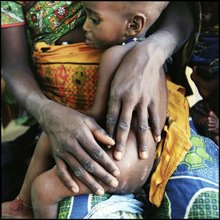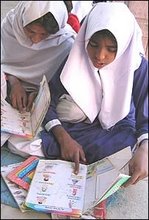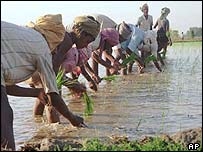PREAMBLE: Over the past two issues we have taken note of decisions by several European entities (Germany, Ireland, and Sweden and the European Commission itself) to suspend funding to the Global Fund on AIDS, Tuberculosis and Malaria (GFATM). In part, this decision was made ostensibly due to concerns about corruption in recipient countries, even though this was limited to only 4 countries (among over a hundred recipients) and was discovered, investigated and openly reported by the Global Fund itself. This level of corruption, independently analysed, is significantly lower than that of the EURO block.
The truth behind this decision is that Europe has been financially mismanaged, with bank failures in some countries, and problems of corruption and mismanagement. European captains of industry (like their Americans counterparts) walked away with fortunes under their belts in the form of self-awarded bonuses, even as their operations have been bailed out by their taxpayers. Several governments are now at risk of unprecedented financial defaults.
The decisions of these European entities smack of old style colonialism: arrogance from the top down. It damages their hard won (or restored) reputations for being global leaders.
To use developing countries and the Global Fund as a scapegoat for this is unconscionable: at least be honest! Instead, these particular European entities should have had the integrity to own up and say “sorry, we cant afford this now, because we ourselves are in such a mess”.
Thankfully, the Bill and Melinda Gates Foundation, being evidence-based, has stepped in to shore up Global Fund finances due to this donor default. Also, former Japanese prime minister Naoto Kan said his country would contribute $340 million to the fund this year. Two years ago, Japan contributed $200 million, but it gave only $110 million last year because of domestic needs from the earthquake and tsunami. Of course many other countries are honoring their pledges, even as many of them also have financial challenges at this time.
“These are tough economic times, but that is no excuse for cutting aid to the world’s poorest,” Bill Gates said in announcing the $750 million contribution.
We congratulate the Gates Foundation, and the government of Japan, a nation that knows more than most the meaning of hardship and tragedy, and apparently has a high sense of integrity.
We dedicate this issue to the major successes now taking place in malaria control, largely thanks to support from the Global Fund. With this purpose, we have partially extracted verbatim the report below which appeared in the Health and Development Global Update published by the HLSP Institute in June 2011.
Reference: Brown D, Gates Foundation gives $750 million to Global Fund. Washington Post January 27, 2012. http://www.washingtonpost.com/national/health-science/gates-foundation-gives-750-million-to-global-fund/2012/01/26/gIQAHKw5TQ_story.html Accessed February 18, 2012.
MALARIA: A GLOBAL UPDATE
The latest WHO World Malaria Report in April 2011 documents impressive increases in intervention coverage and reductions in malaria morbidity and mortality. WHO estimates that the number of malaria cases has fallen by more than 50% in 43 countries over the past decade. Eleven countries in Africa have shown a reduction of more than 50% in either confirmed malaria cases or malaria admissions and deaths in recent years. In Asia, four countries saw a decrease in the number of malaria cases of more than 50% since 2000.
Africa in particular has seen tremendous progress in increasing access to insecticide-treated nets (ITNs) in past 3 years. However, given an estimated lifespan of three years, nets delivered in 2006 and 2007 are already due for replacement and those delivered between 2008 and 2010 will soon be. The challenge is in ensuring that the high levels of coverage achieved are maintained.
We still have incomplete information on access to treatment in general, and particularly for the significant proportion of patients treated in the private sector. We do know that the number of procured rapid diagnostic tests (RDTs) and artemisinin-based combination therapies (ACTs) is increasing globally yet, especially in African countries, most patients are receiving ACTs without confirmatory diagnosis. This continues to represent a significant financial, technical and personal challenge for many patients, health care providers and national malaria control programme managers. One exception is Senegal, which has introduced RDTs on a national scale in public facilities and, with high levels of adherence to diagnostic results, achieved dramatic reductions in ACT consumption . On the other hand, another study in urban Tanzania shows that the introduction of RDTs also had the unintended consequence of increasing inappropriate antibiotic prescription (from 49% to 72%) – a behaviour ascribed to clinicians’ insufficient knowledge and training on other causes of fever. This is why RDTs able to diagnose a range of common illnesses are high on the malaria community’s R&D ‘wish list’.
Coverage with intermittent preventive treatment for pregnant women (IPTp) remains far from target levels – ranging from 2.4% in Angola to 62% in Zambia. No country has yet adopted a national policy of intermittent preventive treatment for infants (IPTi), as recommended by WHO.
In the countries with greatest progress, the decreases are associated with intense malaria control interventions. But this progress is fragile. The resurgence of the disease in 2009 in Rwanda, Sao Tome and Principe, and Zambia shows that control programmes need to be maintained even if numbers of cases have been reduced substantially.
Source: HLSP Institute. Health and Development Global Update. July 2011. http://www.hlsp.org/LinkClick.aspx?fileticket=VxUphqNpW_w%3D&tabid=1575
Envoie: The prevention and control of AIDS, Tuberculosis and Malaria represent moving targets. Only with sustained international support from both public and private sectors, and perseverance by the countries mostly affected, will eventual success be achieved. The results as reported in the above extract are extremely encouraging and should be taken into account by the European entities mentioned in our preamble, when they eventually reconsider their support: which they surely will.
FROM a Great Canadian and World Statesman
"A great gulf... has... opened between man's material advance and his social and moral progress, a gulf in which he may one day be lost if it is not closed or narrowed..."
Lester B Pearson
http://nobelprize.org/nobel_prizes/peace/laureates/1957/pearson-lecture.html
Saturday, 18 February 2012
Subscribe to:
Comments (Atom)
INSPIRATIONAL WELCOME ............................... from T.S.Eliot's "Little Gidding"
If you came this way From the place you would come from... It would be the same at the end of the journey...
If you came, not knowing what you came for, It would be the same... And what you thought you came for Is only a shell, a husk of meaning... From which the purpose breaks only when it is fulfilled If at all.


























